Do you live in the Aberdeen area and struggle with a drug or alcohol addiction? Perhaps you are unsure whether your use has become an addiction, so are questioning whether alcohol or drug addiction treatment is the right path for you.
If you have never experienced any form of drug or alcohol rehab programme in the past, it can be difficult to know what to expect. Is it something that you will manage, or will you be investing time and money in something that will prove to be a waste?
One thing to consider is that it could be your alcohol or drug addiction making you question yourself. The very fact that you are here now proves that you are, at the very least, considering that you may be struggling with addiction.
Whilst addiciton treatment at a rehab clinic is no walk in the park and requires a considerable amount of determination, our partner rehab facilities in Aberdeen offer the best opportunity for those struggling with drug addiction or alcoholism to recover.
Here at OK Rehab, our experienced team of rehab referral advocates have complete faith that you can recover if you can commit to your desire to do so. Many of us are in addiction recovery ourselves and have seen endless others begin a new, sober life, through attending our recommended alcohol and drug addiction treatment facilities.
Get alcohol and drug rehab in Aberdeen and across Aberdeenshire for a variety of addictions including binge drinking and alcoholism, benzodiazepine addiction, Buprenorphine addiction, cannabis use disorder, cocaine addiction and crack cocaine addiction, ketamine addiction, heroin addiction and other forms of opiate addiction and opioid use disorder, crystal meth detox and addiction treatment, any physical dependence or codependency, substance use disorder, and even behavioural addictions such as gambling addiction and eating disorders.
To find out how we can help you today, call our support team on 0800 326 5559
Addiction Statistics In Aberdeen And Aberdeenshire

The rate of drug-related deaths in Aberdeen remains shockingly high. This has resulted in a public warning – the alert was issued by the ADP, the Aberdeen City Alcohol and Drug Partnership. They stated that the risk of death seems to be inherently linked to multi-drug use, specifically benzodiazepines.
In the Summary Findings for Aberdeen City Council, the government found that:
Alcohol Use:
- 33% of 13-year-olds had reported having tried alcohol, whereas 5% had drunk alcohol before the week of the survey.
- 67% of 15-year-olds reported having had alcohol, of which 18% had drunk alcohol before the week of the survey.
- 21% of 15-year-olds appear to have reported having been drunk more than 10 times.
- 13% of 15-year-olds had previously bought alcohol, which is illegal.
Drug Use:
- 7% of 13-year-olds have used drugs, with 5% of these in the last month.
- 27% of 15-year-olds have used drugs, with 17% of these in the last month.
- 25% of 15-year-olds reported having used drugs in the last year.
- 1% of 13-year-olds take drugs at least once a week and 6% of 15-year-olds at least once a week.
- 10% of 13-year-olds felt it was ‘ok’ to try drugs like cannabis, and 43% of 15-year-olds reported the same.
Offering And Sources:
- 27% of 13-year-olds have been offered drugs, and 20% have been offered cannabis.
- 31% of 13-year-olds reported it would be easy to get illegal drugs.
- 56% of 15-year-olds have been offered drugs, and 50% have been offered cannabis.
- 64% of 15-year-olds reported it would be easy to get illegal drugs.
- 46% of 15-year-olds obtained drugs from friends, and 23% of 15-year-olds obtained drugs from older friends.
- 48% of 15-year-olds gave drugs away, and 10% of 15-year-olds reported having sold drugs.
Obtaining Help:
- 8% of 15-year-olds felt they needed help with their drug use.
- 40% of 15-year-olds would say they needed help to stop taking drugs.
Mental Health Statistics:
- 31% of 13-year-olds scored a below-average score regarding emotions.
- 34% of 15-year-olds scored a below-average score regarding emotions.
- 24% of 13-year-olds reported conduct issues, and 32% of them also reported struggling with attention.
- 27% of 15-year-olds reported conduct issues, and 38% of them also reported struggling with attention.
- 26% of 13-year-olds reported problems with relationships.
- 26% of 15-year-olds reported problems with relationships.
It is clear from these statistics that Aberdeen has a significant problem with its young population in regard to drugs and alcohol. Once these issues have been identified, it’s important to notice when and how you may be addicted or dependent on these substances.
To learn more about the help available from an alcohol and drug rehab facility in Aberdeen, call our team today on 0800 326 5559
Drug Addiction And Alcohol Addiction: Signs And Symptoms

If you believe you require attention for your drug addiction & abuse or excessive alcohol use, you need to understand the extent of your use in order to understand what help you might need.
There are generic signs of addiction, as addiction is defined in terms of the inability to reduce or stop using drugs or alcohol, with negative side effects such as decreased socialising and the abandonment of relationships and usual activities.
Classic signs of addiction for both alcohol and substances include:
- Secretive: Often disappearing without explanation or lying about their whereabouts. This can include hiding messages, who they are seeing or missing money.
- Isolation: Users often avoid social settings and reduce time spent with loved ones or friends, normally in fear they will find out about using drugs or drinking too much alcohol.
- Defensiveness: Users tend to get defensive when questioned about their behaviour or possible use.
- Mood Swings: Users will be either high or low, full of enthusiasm and appearing happy, or moody and anxious.
- Appetite and sleep changes.
- Changes in appearance such as rapid weight gain or loss, or needle marks.

The CAGE questionnaire is a good indicator of drug and alcohol abuse. Its four questions are:
- Have you ever felt as though you should cut down on drinking? Yes/No
- Have people annoyed you by critiquing your drinking? Yes/No
- Have you ever felt bad or guilty about your drinking? Yes/No
- Have you ever had a drink first thing in the morning to steady your nerves or get rid of a hangover? Yes/No
This can also be adapted and applied to drug use, based on answers of yes and no. If you answer yes on more than 2 categories, it is deemed to be clinically important that you reach out for help.
There is another test coined the Alcohol Use Disorders Identification Test (AUDIT). This is a more detailed questionnaire, though with some similarities to CAGE.
Developed by the World Health Organisation, it picks up on the first signs of harmful drinking behaviours and aims to identify any drug or alcohol dependency, even the smallest ones.
If you’re worries about a yourself or a loved one being addicted to drugs or alcohol in Aberdeen, call our team on 0800 326 5559
Intervention: Steps To Take Before Rehab Aberdeen
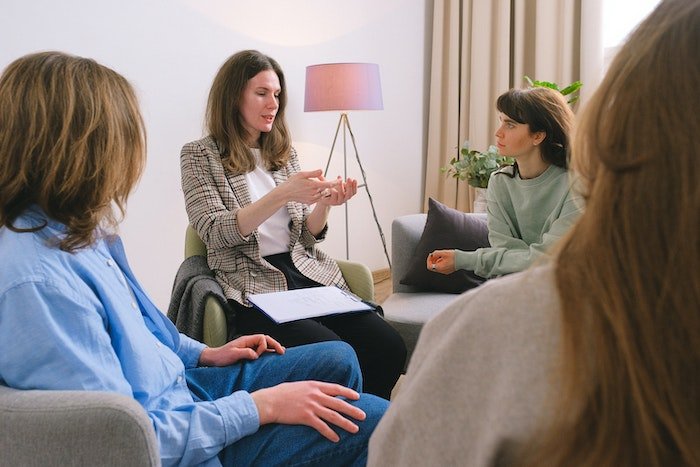
Before a person is already to access drug or alcohol rehabilitation services, they often need a little help.
Intervention is often the first step in helping our loved ones suffering from addiction.
Intervention is a tool for others to help a user seek rehab treatment services for drug or alcohol misuse, along with drug or alcohol dependency and even addictive behaviours such as compulsive shopping, gambling or gaming addiction.
This step is key to persuading users that they need help, so recognition of the original problem is the aim here.
People who are affected usually sit the user down for a conversation in the comfort of their own home.
This safe space makes it easier for the user and affected friends and family to open the floor to concerns and feelings.
There are various different methods of intervention that can be used.
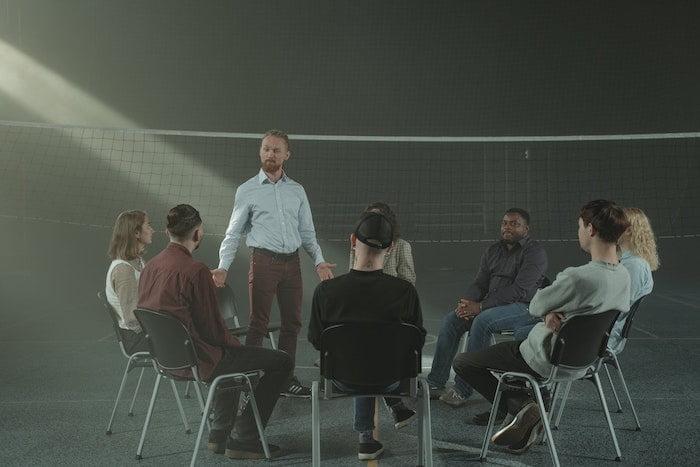
The CRAFT treatment approach is a specialised intervention method that avoids confrontation. CRAFT stands for Community Reinforcement And Family Training, and is intended to help the family and concerned others of people with a substance use problem.
The aim is to steer the users away from substances, with the intention of getting them into a drug and alcohol rehab centre or other form of help.
Users tend to believe interventions are a forced way of getting them help and end up refusing an alcohol or drug addiction treatment service, but this is a common misconception.
It lets concerned individuals take a step back, allowing the negative consequences of the user’s behaviour to occur. This is done by reinforcing positive behaviours, and not rewarding negative or bad consequences of actions.
CRAFT encourages:
- Finding out temptations and triggers of use
- Communicating clearly about emotions
- Positive reinforcements for non-using and social behaviour
- Let the user face the negative consequences of bad actions
- Constant support
If you manage to persuade the user to seek an appropriate rehab treatment service, it is best to be fully informed about the various treatment costs, routes and therapies available.
For more guidance about conducting an intervention in Aberdeen, call our team on 0800 326 5559
How Will I Find The Most Appropriate Rehab Programme For Me In Aberdeen?
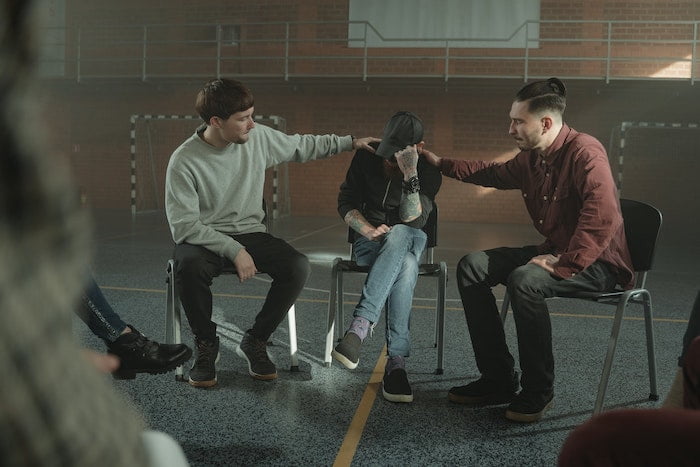
There are several alcohol and drug addiction recovery treatments available in Aberdeen, and the type of rehab treatment service that will suit you best depends on the nature and severity of your addiction.
The first step is to take our short assessment, which will allow us to establish this information and recommend the best rehab treatment option for you.
Although there are NHS services available in the area, you will find that obtaining a place on an addiction recovery programme is very difficult. Unfortunately, this is an underfunded and oversubscribed area of medicine, so there are not enough places available for the number of people who need help.
You will also find that most of the NHS treatment service options consist of outpatient therapy, which required a large degree of self-reliance and is only suitable for those with very minor or early-stage alcohol or drug addiction.
This is one of the key reasons why a private rehab centre is usually considered the better addiction treatment option.
Here at OK Rehab, we are likely to recommend either outpatient treatments or a residential treatment programme with one of our trusted partner facilities. All the facilities that we recommend are governed by the CQC (Care Quality Commission), which holds them to high standards of care, safety and addiction treatment of their clients.
Outpatient treatment service is only likely to be recommended to individuals with more minor alcohol or drug addiction problems, as once a moderate level of addiction is present, the success rate for outpatient treatment is reduced.
A residential rehab program at professional drug and alcohol treatment centers offer the best possible recovery probabilities for those with moderate to severe alcohol or drug addiction problems.
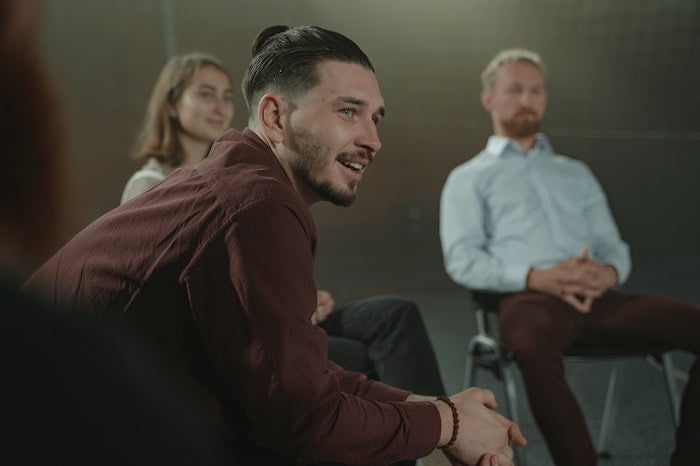
The good news is that drug addiction and alcoholism treatment can both be found in Aberdeen, allowing recovery options that are close to home.
There are many benefits of local residential addiciton recovery services, from the ease of family visits to the accessibility of aftercare services.
That being said, some people will feel more comfortable being further removed from their daily surroundings, to help aid with focus.
Wherever you feel is the most suitable drug and alcohol rehabilitation clinic location for you, we will be able to make a recommendation from our list of expert partners.
We’re ready to take your call and your questions, whether you would prefer to recover in Aberdeen or further afield in one of our regional rehab treatment centres.
Other organisations worth considering
Below is a list of other organisations that offer free support for addiction in Aberdeen:
1. We Are With You | Wernham House
Address: 7 Virginia St, Aberdeen AB11 5AZ
Telephone: 01224 210547
Website: https://www.weareac.org/wernham
2. Addaction
Address: 480 Union St, Aberdeen AB10 1TS
Telephone: 01224 218120
Website: https://www.wearewithyou.org.uk/help-and-advice/
3. Alcohol & Drugs Action
Address: 7 Hadden St, Aberdeen AB11 6NU
Telephone: 01224 577120
Website: http://www.alcoholanddrugsaction.org.uk/
You can also call a number of helplines, including Mind UK, YoungMinds, Rethink Mental Illness, Samaritans and Papyrus, SMART Recovery or find an Alcoholics Anonymous, Narcotics Anonymous or Cocaine Anonymous nearest you. The NHS are also there to give you support.
Other organisations that can offer you free help and support for alcohol and drug addiction include:
- Turning Point
- We Are With You
- The National Association for Children of Alcoholics
- Change Grow Live
- Al-Anon
- Alateen
Rehab clinics and organisations are advised by the American Society of Addiction Medicine and the National Institute for Health and Care Excellence, so you can be confident that are in safe hands and will receive effective, person-centred care designed from a clinically led recovery model.
You may also be offered access to sober living houses as part of your aftercare after you leave your drug and alcohol rehab facility. These recovery options help patients to maintain theirr sobriety and help with relapse prevention.
Find the help you need at a drug and alcohol rehab Aberdeen by giving us a call on 0800 326 5559
How Long Will Rehab In Aberdeen And Aberdeenshire Take?

As every rehab programme will be tailored to the individual, it is very difficult to say how long your rehab treatment will take without having additional details about your personal addiction.
When you speak to one of our experienced call handlers, they may be able to give you a better idea.
However, your progress will be monitored throughout your rehab programme, which means that a degree of flexibility is required.
A typical residential rehab programme would last around 28 days, although this can be longer or shorter depending on the following:
- The substance(s) used
- The length of your alcohol or drug addiction
- The quantity and regularity of substance use
- Your personal commitment to the addiction recovery process
- Any pre-existing physical or mental health problems (you will receive a full psychiatric assessment by a psychiatrist, who will decide if you need any psychiatric treatment service)
Both a long-term rehab programme or a short-term rehab programme can be the right treatment for any given individual if their needs require it.
Stages of the alcohol detoxification process
Alcohol dependency can be confirmed fast and efficiently using the Alcohol Use Disorders Identification Test, DSM-5 or CAGE questionnaire.
Dependent drinkers will have built up a strong tolerance to alcohol, and experience unpleasant withdrawal symptoms (alcohol withdrawal symptoms) or alcohol withdrawal syndrome when they stop drinking, so these symptoms need to be managed carefully.
To ensure that the risk of seizures is curtailed our medical team prescribe patients with Chlordiazepoxide, brand name Librium, as they undergo the alcohol detox process as this has been proven to offer more protection against the risk of seizures.
A medically-assisted alcohol detox process is needed in order to try to prevent the effects of alcohol withdrawal, including encephalopathy (Wernicke encephalopathy) and delirium tremens. This why recovery at a rehab or dedicated detox center is always the safest option.
Other types of medication you might need include Acamprosate (Campral®) which helps rebalance the chemicals in the brain that have been damaged by alcohol; an antidepressant like nefazodone, desipramine, or imipramine to aid any anxiety or depression caused by alcohol; or the opioid antagonist Naltrexone which works to uncouple the relationship between alcohol and pleasure by acting as an alcohol demotivator.
For an accurate estimation how long your rehab treatment service in Aberdeen will take, call our team on 0800 326 5559
The Dangers Of Detoxification: Why Can’t I Recover From Drug Or Alcohol Addiction By Myself?
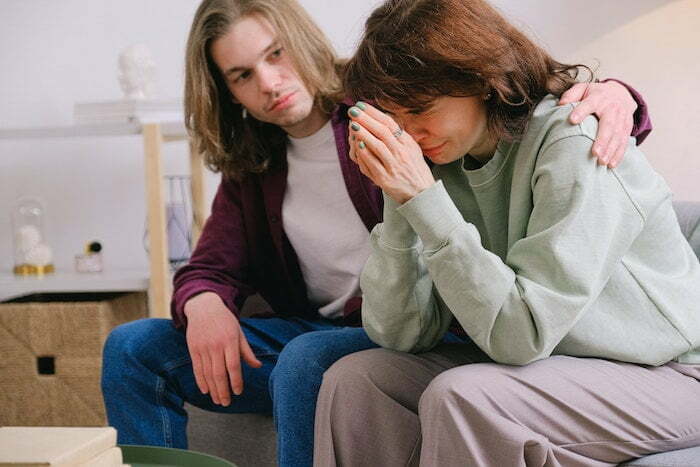
Whilst there are drug and alcohol home detox kits available, detoxing from drugs and/or alcohol at home can be extremely dangerous.
We would not recommend that anyone attempts this without professional guidance and support, as some of the withdrawal symptoms -especially for certain types of substances- can be life-threatening.
It is impossible to provide mental health support when a person recovers at home.
The problem of alcohol & drug addiction & abuse is not just a physical issue – your brain is affected in a number of ways, and without breaking the psychological connection that you have to your substance of choice, the entire detox process can be redundant as relapse is highly likely.
Therefore, we highly recommend that you find a professional drug or alcohol rehabilitation programme if you are serious about your addiction recovery journey. We only work with highly renowned rehab clinics that offer substantial success rates.
To learn more about alcohol and druh rehabilitation in Aberdeen, call our team on 0800 326 5559
Rejecting Misconceptions: Types Of Addiction Treatment, Insurance And The Cost Of Rehab In Aberdeen
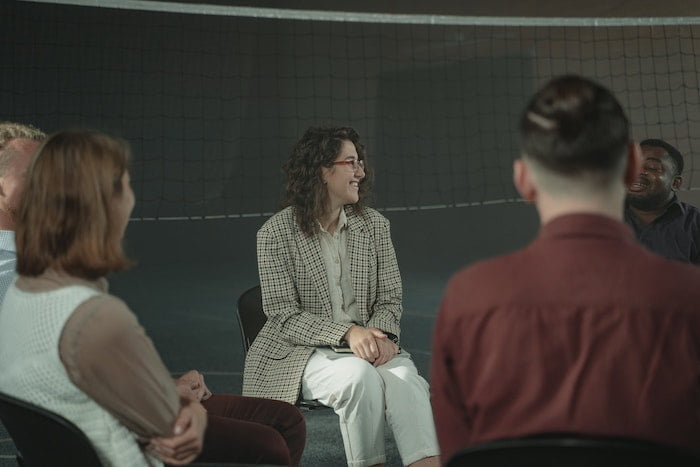
Despite its reputation for expense, the real cost of a rehab program depends on many different factors. The most significant point is the category of drug or alcohol rehabilitation.
Outpatient rehab programme: The user continues to live at home but attends the rehab clinic for regular help such as therapy and/or medication.
Inpatient rehab programme: The user moves into the rehab clinic whilst attending a strict daily schedule of therapy and addiction treatment.
All of these rehab treatment services have different prices associated, in conjunction with how much attention you will be receiving.
Inpatient facilities aren’t usually funded by the NHS, but can be funded through private insurance. If you attend a GP appointment, they may refer you to an outpatient centre, despite the long lists, but this can remain free.
Inpatient treatment is expensive, but you will be cared for 24/7 by expert staff. They can cost from £490 a day to up to £14,000 for a month.
The usual time spent in an inpatient rehab programme is 28 days, but prices can be settled on a pricing scheme, or they can be flexible. The cost of addiction treatment at an inpatient rehab clinic will cover:
- Rent/residency
- Utilities, medications and evidence based addiction treatments
- Food and facilities
- High-quality staff

If you attend a rehab clinic for addiction to substances such as heroin or alcohol, you will be required to complete alcohol or heroin detox first as these substances are physically addictive.
Alcohol addiction may require a Librium-based detox process.
This is also called pharmacological intervention. Over a 10-day period, you will take Librium to reduce the risks of seizures and mental health issues such as chronic anxiety.
The brain chemistry of an addiction sufferer is changed once drug or alcohol dependency sets in. Librium helps to balance out this abnormal brain chemistry, minimising any withdrawal symptoms.
Heroin detox will require much stronger medications in order to deal with the more complicated process of heroin detox.
Cannabis and cocaine addictions do not require detoxification as they are not physically addictive, although the phrase cocaine detox is sometimes used at cocaine to describe the initial days of recovery when withdrawal symptoms can be the most intense.
Depending on your level of addiction you will have different needs – the worse the addiction, the longer and more intense the time you will require in an alcohol and drug rehabilitation centre.
There are many different types of therapies offered at drug and alcohol rehab Aberdeenshire.
You will also receive treatment for any related conditions that have developed as a result of alcohol or heroin abuse, such as hepatitis.
To answer any other questions you have about drug and alcohol rehab Aberdeen, call us today on 0800 326 5559
Therapies Available At Rehab For Drugs And Alcohol In Aberdeen

Many different therapies and treatment techniques are employed by modern drug and alcohol rehabs to treat addiction.
Each of these evidence based addiction treatments will provide a particular kind of support that brings unique strengths.
Whilst not every technique will work for every patient, and whilst any given rehab will only be able to offer a select number of therapies based on their resources and specialisation, the sheer variety of treatments available allows for a bespoke treatment plan to be tailored for each individual looking to beat addiction.
Cognitive Behavioural Therapy and Dialectical Behavioural Therapy
CBT and DBT differ slightly. CBT helps patients seek help when their troubled thoughts can be potentially harmful. DTB has a larger focus on emotions and self-acceptance.
By addressing problematic thoughts, CBT can help you out of a trap in the vicious cycle of addiction.
In breaking down these thoughts CBT helps you deal with overwhelming problems and improve negative thought patterns. This focuses on current issues without focusing on the past.
Based on CBT, DBT aims to understand and learn to manage difficult feelings so you can then make positive changes. DBT treats issues of self-harm and suicidal thoughts, making you committed to positive changes and acceptance of the self.
Holistic Therapy

Equine, music, art and adventure therapy are just a few examples of this type of therapy.
Holistic therapy is body-centred, an integrating type of therapy that coordinates the body, mind and soul as a whole, not focusing on individual parts or concerns.
These therapies influence one’s understanding of themselves on a deeper level, a type of mindfulness that promotes relaxation and a better balance of a healthy life.
Holistic therapies utilise techniques that aid the understanding of symptoms, to understand bodily connections that play a vital role in mental health.
Twelve-Step Facilitation Therapy

12 step therapy is commonly used in groups such as Alcoholics Anonymous and Narcotics Anonymous.
This assists those who are suffering from addiction, providing a structured programme of 12 clear steps.
The 12 steps are:
- We admitted we were powerless over alcohol – that our lives had become unmanageable.
- Came to believe that a higher Power greater than ourselves could restore us to sanity.
- Made a decision to turn our will and our lives over to the care of God as we understood Him.
- Made a searching and fearless moral inventory of ourselves.
- Admitted to God, to ourselves and to another human being the exact nature of our wrongs.
- Were entirely ready to have God remove all these defects of character.
- Humbly asked Him to remove our shortcomings.
- Made a list of all persons we had harmed, and became willing to make amends to them all.
- Made direct amends to such people wherever possible, except when to do so would injure them or others.
- Continued to take personal inventory and when we were wrong promptly admitted it.
- Sought through prayer and meditation to improve our conscious contact with God as we understood Him, praying only for knowledge of His will for us and the power to carry that out.
- Having had a spiritual awakening as the result of these steps, we tried to carry this message to alcoholics and to practice these principles in all our affairs.
The 12 step treatment programme encourage the patient to be active in the addiction recovery process and to participate in helping their fellow addiction sufferers.
Attending these meetings must be had with an open mind, where recovering individuals are encouraged to describe personal experiences and achieve sobriety with the support of one another.
The 12 step treatment programme and its associated meetings can also form a critical part of relapse prevention.
To discover what kind of addiction treatments to expect at a drug and alcohol rehabilitation centre in Aberdeen, call us today on 0800 326 5559
Relapse Prevention And Aftercare After Rehab For Drugs And Alcohol In Aberdeen

A relapse is not a strange or random occurrence for a person in the addiction recovery process – it is part of most people’s recovery journey.
Relapse prevention is focused on a cognitive and behavioural treatment approach, hoping to reduce risks and triggers associated with relapse.
Relapse tends to occour in approximately around 40-60% of previous addiction sufferers.
Do not let this put you off – it’s the same as quitting smoking and having a cigarette after a few months off. It is not something to be ashamed of, it’s something that is normal.
Our aim is to aim to prevent these relapses as much as we can. How can we do that?
- Support groups such as Alcoholics Anonymous (AA), Narcotics Anonymous (NA) and SMART Recovery
- A properly monitored drug or alcohol home detox process
- Continuous outpatient treatment service
- Avoiding triggers, such as places and people you used to use with
Reach Out To The OK Rehab Team
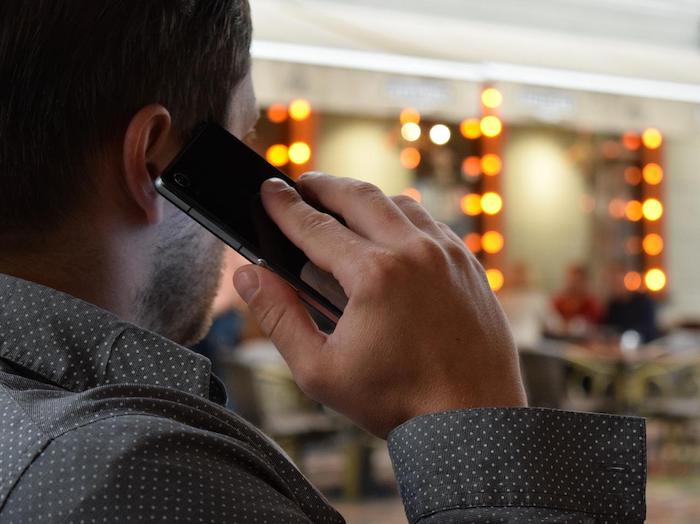
It can be a daunting step to admit that you need professional addiction recovery treatment and even more daunting to reach out for it.
But we can help you access the best recovery options for your needs.
All drug and alcohol rehabs must be registered and audited by the Care Quality Commission (CQC).
Don’t forget, here at OK Rehab, many of our call handlers are in the recovery process themselves, so there is no judgment.
We will be able to answer any of your questions or concerns about the rehab process, from admission to returning home to Aberdeen as a new, sober person.
OK Rehab also offers drug and alcohol rehab services in places across Scotland and across the rest of the UK, including Dundee, Edinburgh, Glasgow, Inverness, Perth, Paisley, Hamilton, Livingston and Stirling.
Contact us today on 0800 326 5559 and begin your addiction recovery journey towards a healthier, addiction-free life





